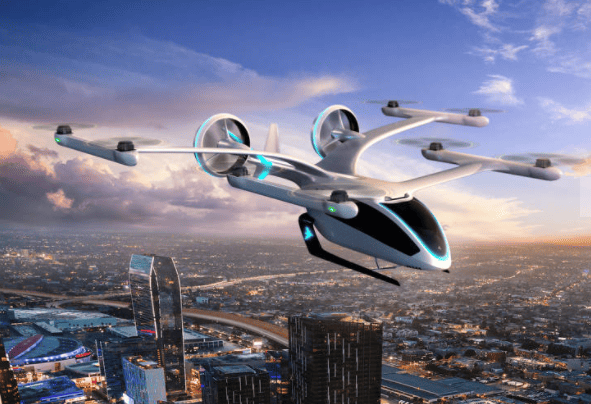
Thales, a heavyweight of the global aerospace industry, has joined forces with Eve to help it develop electric vertical take-off and landing vehicles (eVTOLs). Initially, the French multinational and Embraer-controlled company will conduct joint studies for 12 months starting in January, focusing on the aircraft’s systems. But the partnership can be extended to the other components of the urban air mobility ecosystem.
“This is a very promising market, but also a very new one. We will act in co-creation,” said Luciano Macaferri, Thales’s CEO for Brazil. The company, a giant in defense and digital security, already conducted research on eVTOLs, but had not joined a specific project until now.
The partnership also has a financial approach. Eve’s “flying car” or “electric air taxi,” as the eVTOLs have been called, is due to enter service in 2026 and has already secured $549 million in funding, enough to advance to the certification stage. Thales is among the investors that have contributed to the project, but the exact amount is protected by a confidentiality agreement.
According to Eve’s co-CEO Andre Stein, Thales can contribute by way of extensive experience in aircraft parts – aviation, electrical, flight control, navigation, communication and connectivity systems – and in the joint creation of solutions for eVTOL. “Bringing in another company, like Thales, makes the project more robust,” he said.
The multinational was already an important supplier of electronic systems to Embraer, used in commercial and executive jets and the KC-390 Millennium. Eve’s future suppliers are still to be selected, but the fact that Thales is participating in the eVTOL development project puts the company in an advantageous position.
According to the executives, the cooperation is not limited to Thales’s funds in Brazil. In the country, the multinational’s Space Technology Center, in São José dos Campos (São Paulo), and its Aircraft Center, in São Bernardo do Campo (in the same state), will serve as a base for the studies. But engineers in France, Canada and the United States will take part in the effort.
The Thales-Eve partnership also comes in handy from the certification standpoint, the executives note. Eve formalized in February its Type Certificate (TC) request at the National Civil Aviation Agency and will seek certifications in the United States (FAA) and Europe (EASA). The interaction of the multinational with these regulators and the possibility of exchanging information will contribute to the process.
With 1,785 units in the order backlog, Eve estimates that the price of its eVTOL will be $3 million. The electric aircraft aims to offer comfortable, low-noise, zero-carbon transportation. Initially, it will be manned, with capacity for four passengers, and there is still no formal decision on where the aircraft will be produced – what is certain is that the partner, at this stage, will be Embraer.
The listing of Eve on the New York Stock Exchange, after the merger with Zanite Acquisition, is expected to take place this quarter. Initially, the Embraer-controlled company was valued at $2.4 billion.
Source: Valor International
